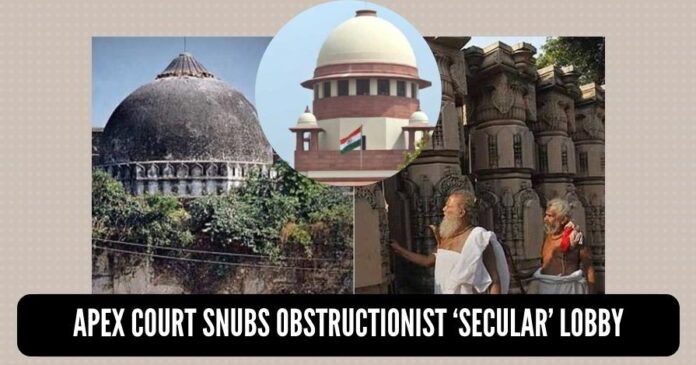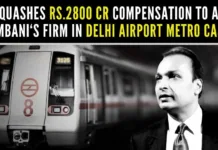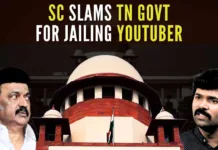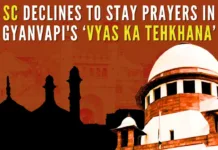
When the apex court Bench took up the Ayodhya case, it had made it clear that the Justices would concern themselves strictly with the title deed dispute and that matters of faith would not be a contributory factor.
They schemed. They plotted. They hedged. They did all these to somehow complicate the Supreme Court’s task of settling the decades-long dispute on the Ayodhya Ram temple-Babri mosque issue. Now they have spectacularly failed. Perhaps seeing through their plans, the court has quashed such insidious attempts, clearing the way for an early verdict — perhaps as early as this year, or before the 2019 parliamentary election.
Sibal’s contention had led to a furore, with even the client that he represented in the court, the Sunni Wakf Board, expressing a bit of surprise at the stand he took.
The latest try by vested interests to delay a judgement was in seeking to challenge a 1994 Supreme Court ruling which said that a mosque was “not essential part of the practice of the religion of Islam, and namaz can be offered anywhere, even in the open”. The idea was to drag in a religious matter, citing the sensitivity involved, get the 1994 order referred to a larger Bench for reconsideration, and then demand that hearing on the Ayodhya title deed case be deferred until a verdict on the challenge to the 1994 order came. In other words, these vested interests — ‘secular’ individuals and organizations — wanted to put the title deed legal issue in the deep freezer.
This has not been the first attempt. It may be recalled that senior advocate and Congress leader Kapil Sibal had, some months ago, appealed to the apex court to defer hearing on the core case, and received a snub in return. He had argued, uncharacteristically for a sensible lawyer of his mettle, that there existed an “agenda” and “bias” in the “hurry” being displayed by certain quarters on the matters. He wanted the issue to remain on the back burner until after the parliamentary election was held in 2019. His contention had led to a furore, with even the client that he represented in the court, the Sunni Wakf Board, expressing a bit of surprise at the stand Sibal took. Whatever, the brazen attempt to politicise what was essentially a legal matter of title deed, was not lost on anyone.
It also demonstrated, just as the more recent effort has, a sense of discomfort prevalent in the ‘secular’ camp over the impending judgement. But why? Does the pro-mosque lobby already realize that it has a lost case on its hands?
The ‘secular’ lobby may pull out rabbits from the hat to delay or vitiate proceedings in the case.
These desperate elements cannot even see the writing on the wall. When the apex court Bench took up the case that arose out of a 2010 Allahabad High Court order, which had ruled in favour of a three-way division of the disputed site, and which judgement got challenged and landed before the Supreme Court, it had made it clear that the Justices would concern themselves strictly with the title deed dispute based on available material, and that matters of faith would not be a contributory factor to either the proceedings of the case or the final order. And yet, certain people proceeded to drag in the 1994 verdict, which is nothing but based on faith, to cloud the non-faith proceedings.
It’s not that the three-judge Bench headed by the Chief Justice of India, Deepak Misra, has shown disregard to religious belief. On the contrary, one of the judges on the Bench — which is set to resume hearing on the title deed matter from October 29 — referred to the 1994 remarks as “questionable observations”. However, the Bench also made it known that the observations were irrelevant to the case at hand — if nothing, for the reason that the 1994 case dealt with land acquisition, whereas the present case was civil in nature and related to the land dispute.
The Supreme Court’s refusal to entertain the plea on the 1994 matter came by way of a majority 2:1 verdict. The dissenting judge was Justice SA Nazeer, who held that the 1994 observations had impacted the Allahabad High Court ruling — and since the present case before the apex court directly flowed from dissatisfaction over the High Court’s verdict, it was necessary to settle via a larger bench, the issue of a mosque being an essential part of prayers in Islam.
We must not underestimate the resources and ingenuity of the ‘secular’ lobby. They may yet pull out rabbits from the hat to delay or vitiate proceedings in the case. The earlier the Supreme Court settles the matter once and for all — at least legally — the better it will be for the nation.
Note:
1. The views expressed here are those of the author and do not necessarily represent or reflect the views of PGurus.











I fully agree with both.High time India is declared a Hindu nation where people following other religions can also live without meddling.There will e one law.Conversion and evangelism strict NO.All churches and their finances should come under the administrative control and oversight of GOI.Foreign contribution to Churches must be banned.This is the main driver of conversion menace.Violators must be disenfranchised.
At beginning, of the write-up, the earlier Ct order has been misspelt, it should not be that mosque is not an inessential part but should correctly state, not an essential part
Why this Tamasha in courts ? Stupid Hindus gave away 1/ 4 of their land to Muslims in 1947 along with temples, which have been destroyed. At least 3 sites, Kashi, Mathura and Ayodhya land, should have been acquired in 1947 itself and restore the temples. Hindus are committing blunder after blunder and now they have given freedom to muzzles to abuse us thru TV channels . Check any TV debate in the world and identify a single channel where the minority abuses majority . The basic question is when India was divided on religious lines, why India was not declared a democracy with Hinduism as national religion.
Though Europe and US are democracies, they are called Christian nations. We have 55 Islamic countries. Srllanka, Thailand, Cambodia’s, Myanmar declare themselves as Buddhists countries. Why Hindus feel shy to call India as a Hindu nation ? Do they lack self respect ?
Very true. That was the plot of nehru..
When division was based on religion, if one went Muslim, the other should have been made Hindu. India would have prospered ….
Now all minorities behave as majority and majorities are treated as minorities.
For India to be truly secular, India should be made a Hindu nation.
That Sonia plotted with her Italian mafia to convert the only Hindu nation Nepal to secular only to intensify christian conversions.
Nehru was installed by the British, not Gandhi. He did what they ordered him to do.